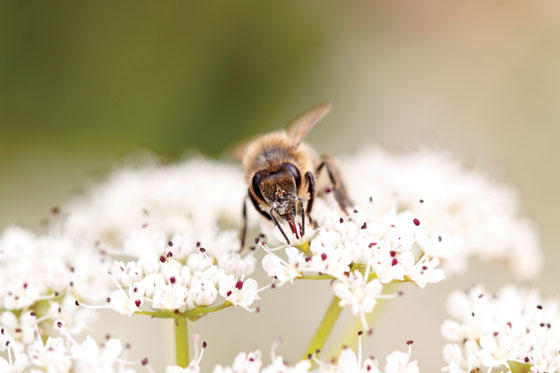Though there has been widespread media coverage of the massive die-offs of birds and fish throughout parts of the United States, there has also been a die-off of another species that has received less attention. The bumblebee population, not only in North America but around the world, has been dropping drastically since the mid 1990s. According to a three-year study of 73,000 museum specimens performed by the National Academy of Sciences, the population of four species of bumblebees has declined up to a worrying 96%.
Bees, who needs them? Everyone, actually. We are dependent on the buzzing creatures to pollinate the world’s food crops. “If the bee disappeared from the surface of the globe, then man would only have four years of life left. No more bees, no more pollination, no more plants, no more animals, no more man.” It has been said that Albert Einstein was the source of that dread-filled quote, though others argue its merits.
The source of the quote may be arguable, but what’s not arguable is the situation the world would be in if bees even come close to making the endangered species list.
Like honeybees, bumblebees rely on pollen as a source of protein and are widely used, and favored as opposed to honeybees, as pollinators for several multibillion-dollar commercial crops, such as blueberries, apples and tomatoes, along with various nuts and grains. Crops used as cattle and pig feed are also dependent on bees. In fact, bees are vital to the success of approximately 90 crops worldwide and one-third of the food we eat.
The problem is, researchers are unable to pinpoint a direct cause of the die-off. Some have pointed to the increasing use of pesticides, while others blame an exotic disease or a genetic malfunction. For the agriculture industry, the best risk management for now may be to put their resources towards finding the cause of the declining bee population and a possible solution . . . and fast.


Good riddance! To bees and man.
good riddance to man